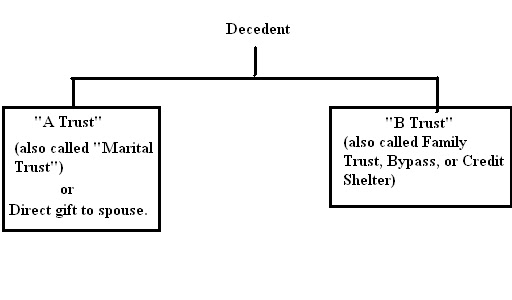Grandma
|
|
Junior
|
|
Skippy
|
|
Skippy II
Grandma is the person who's going to be making the transfer. Assuming all of these people are living on the date of the transfer, Skippy and Skippy II would be "skip persons" and Junior would be a "non-skip person"--yes, that's the official term from the tax code. A gift to Skippy or Skippy II would be a "generation-skipping transfer," and will be subject to the GST unless the annual exclusion applies or Grandma has GST exemption she can allocate to the transfer. A transfer to Junior is not a skip, and will not be subject to the GST. (If Junior dies, and then Grandma makes a transfer to Skippy, that will not be a skip because there is no living person in the generation between them, and the GST won't apply--but transfers to Skippy II will still be skips subject to GST.)
So far, I've been talking about outright gifts. If the gifts are made to a trust, the question of whether they're skips or not is determined by looking at the beneficiaries of the trust. A gift to a trust for the benefit of Skippy will be a skip because Skippy is a skip person. A trust for the benefit of Skippy and Skippy II--same result, because all of the beneficiaries are skip persons. All of these transfers are called "direct skips," and if there's any GST to be paid, it's paid when the transfer is made.
Now for the tricky part: what about a trust for the benefit of Junior, Skippy, and Skippy II? Let's assume for purposes of the example that the trustee can make distributions to any one or more of these three people in its discretion. A trust like this might be seen where Junior is the "gray sheep" of the family.
In this case, when Grandma puts assets into the trust, we don't know if the transfer is a skip yet because we don't know if any particular property in the trust will be distributed out to a skip person (Skippy and Skippy II) or a non-skip person (Junior). If the trust makes any distribution to Junior, those are not skips, and there's no GST. Any distributions to Skippy or Skippy II are "taxable distributions" on which a GST will have to be paid at the time of distribution unless Grandma allocated GST exemption to the trust back when she created it.
What happens when Junior dies? As of that moment, we know for a certainty that all future distributions will be to the skip persons. Junior's death is therefore a "taxable termination"--it's called that because the interests of all non-skip persons in the trust have terminated--and is the occasion for assessing the GST against all of the remaining trust property--again, unless Grandma allocated GST exemption to the trust back when she created it.
In other words, a transfer to one of your children which is held in trust for life, with final distribution to your grandchildren, may subject the trust property to the GST. Therefore, it's necessary to allocate GST exemption to the trust when the trust is created; this is done on the relevant estate tax or gift tax return. If you don't have enough GST exemption to cover the entire transfer, the trust has to be designed so that the non-exempt part is included in your child's estate so that it's taxed there instead of being hammered by the GST.
